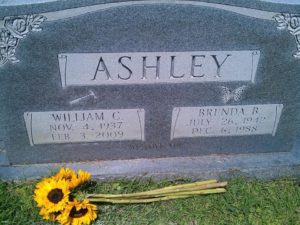I am bipolar but didn’t know it until I was 34 years old.
 I thought I was just a hormonal moody teenager. Small things would send me over the edge. My frizzy hair would not do what I wanted so I took the scissors to it and cut it to my scalp in the back where I have a cowlick. I could not find the pair of shoes I needed to get ready and I would sit in the closet crying while digging through looking for that shoe’s mate. My mama commented that I looked like I had gained a few pounds and I refused to eat for three days. It got to the point where even I wished I could get away from myself. I knew I would be acting completely irrational and could not stop myself.
I thought I was just a hormonal moody teenager. Small things would send me over the edge. My frizzy hair would not do what I wanted so I took the scissors to it and cut it to my scalp in the back where I have a cowlick. I could not find the pair of shoes I needed to get ready and I would sit in the closet crying while digging through looking for that shoe’s mate. My mama commented that I looked like I had gained a few pounds and I refused to eat for three days. It got to the point where even I wished I could get away from myself. I knew I would be acting completely irrational and could not stop myself.
“There’s nothing wrong with you. You just need to get out of this room and out of the house sometimes,” my grandfather would say (the same man who made me come straight home after school).
But school was also a nightmare for me. At the time, I attributed it to wishing for popularity, but now I understand that I had a lot of other issues going on that made my teen years more of a roller coaster. I skirted around the household rules and found a job, but that was not the solution either.
I hated myself, how I was acting, and my lack of being able to control myself.
I finally flippantly said something to the family doctor that let him know that I needed help, that there was something wrong with me. I was diagnosed with depression and given medication when I was nineteen. I went home with my prescription bag, told my grandfather what the doctor had said, and walked to my room without another word. A little while later, my grandfather came to my room and apologized for telling me there was nothing wrong with me.
Not fully living
I was off and on antidepressants for years, but I never felt fully alive. It was a half-life. I began seeing a therapist after both my mama and grandfather passed away within months of each other; after talking with her, she referred me to a psychologist for testing.
Depression was only half of my story. After several sessions with the psychologist and lots of paperwork, I found out why I had never fully felt as though my medications made me feel better. They were only half of the solution.
Misdiagnosed
My family doctor knew me outside of just being a patient. That same doctor had observed my behaviors and diagnosed me with depression without taking the time to do a more thorough screening. It was not just depression. In July of 2013, I found out I had been misdiagnosed for 15 years.
I have Bipolar Disorder Type II with rapid cycling. For treatment, I do need antidepressants – but I also need a mood stabilizer to help balance me out.
Bipolar II means that I have both manic and depressive episodes. I am more prone to depressive episodes, and my manic episodes are less severe than someone who is Bipolar I. Rapid cycling is determined by having four or more episodes in the same year. They can be manic, depressive, or a mix of both.
Is this hereditary?
Bipolar disorder can be caused by genetic, biological, and environmental factors but there is no one single cause.

Although I cannot say this with 100% accuracy, I do believe that I have a genetic predisposition to this mental disorder. My Nanny committed suicide when I was ten years old after years of self-medicating herself. I remember a loving, creative woman who was sick and unhappy a lot. I also remember the house being completely searched after her death, pill bottles found hidden in random places.
When I came home that day with my first diagnosis, I think it hit my grandfather that the same thing wrong with me had probably been wrong with Nanny, too. Most people who commit suicide have a diagnosable mental disorder — most commonly a depressive disorder or a substance abuse disorder.
Being okay with who I am
I was afraid of my diagnosis at first. To me, it meant a lifetime of medication. It meant being on the lookout for the “big” episode when I could do something potentially stupid. It meant wondering what people would think of me when they found out.
After I got comfortable with my diagnosis, I decided to never hide it. It was a relief to have a name to put to this thing I was living with. A thing with a name can be learned about, managed, conquered. If my being transparent about being bipolar helps one person realize they need help, then it is worth the wide-eyed looks and questions.
I know some who have been made to feel ashamed of being bipolar. I will not be one of those people. I REFUSE!
Are you looking for help now?
Tricare Mental Health Information
National Network of Depression Centers
Mental Health America Affiliate Resource Center
National Suicide Prevention Lifeline – 1-800-273-8255
(If you are in an immediate crisis, go to your local emergency room)










